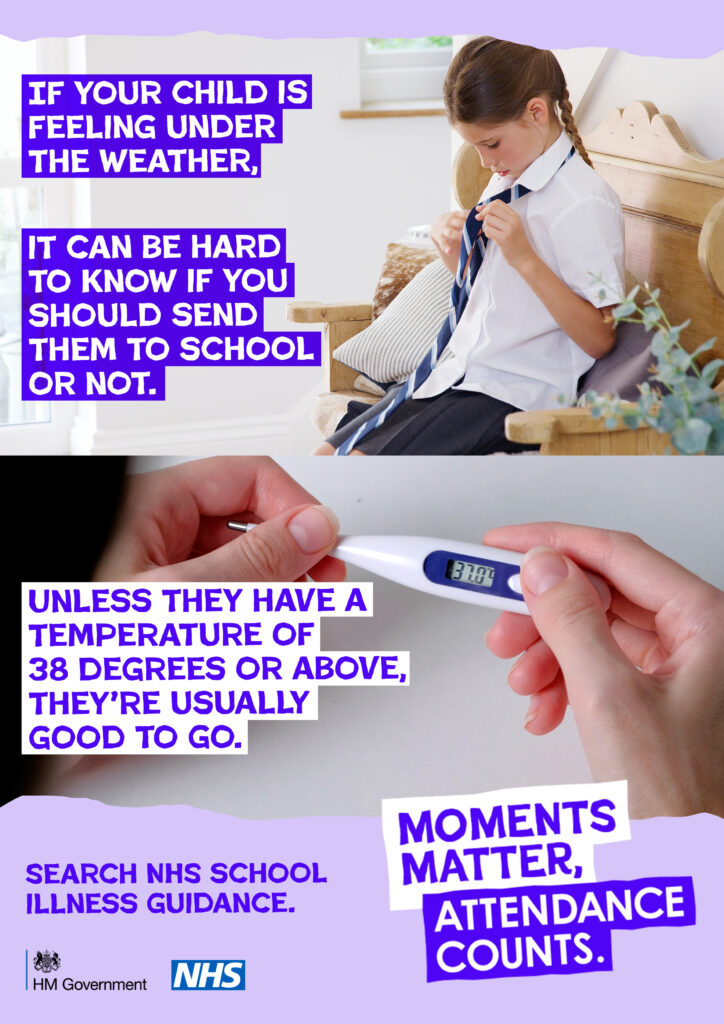Attendance | Health
https://www.nhs.uk/live-well/is-my-child-too-ill-for-school/
Please see advice and guidance here
- The above website includes information on common childhood illness and exclusion times; may we remind all parents that Children with diarrhoea or vomiting should stay away from school until they have not been sick or had diarrhoea for at least 2 full days (48 hours).
- You know your children best, but the latest medical and government guidance is a return to pre-Covid normality: It is usually appropriate for parents and carers to send their children to school with mild respiratory illnesses. This would include general cold symptoms: a minor cough, runny nose or sore throat. However, children should not be sent to school if they have a temperature of 38°C or above.

There are things we can all do to help stop the spread of infections; teaching young people to do these things will help them to stay well and protect others.
1 – Staying home when unwell
Knowing when your child should stay at home from school or nursery if they are poorly can help slow the spread of many illnesses.
- If your child is unwell and has a fever, they should stay home from school or nursery until they feel better, and the fever has resolved.
- If your child has diarrhoea and/or vomits, they should stay off school or nursery for at least 48 hours after their symptoms clear up.
Adults should try to stay home when unwell too.
Children with a runny nose, sore throat, or slight cough who are otherwise well and do not have a high temperature can continue to attend their education or childcare setting.
2 – Hand hygiene
Hand-washing is one the most effective ways to stop germs from spreading.
Regularly washing hands in soap and warm water for 20 seconds or using hand sanitiser when out and about can help you and your child to stay well and not pass on germs.
3 – Catching coughs and sneezes
Using a tissue to catch coughs and sneezes and then binning it before washing your hands with soap and water or hand sanitiser can help to stop infection from spreading.
Teaching children this habit and providing them with tissues will help them to not pass on germs when they are unwell. Our e-bug resources for Early Years can help you to explain to your child what good hygiene habits are, how they can practise them and why they are important.
4 – Get vaccinated
Getting your child vaccinated protects them and others they come into contact with. It’s best for your child to have their vaccinations according to the NHS vaccination schedule, but it’s never too late to check if they can still have them.
Call or visit your GP surgery to make sure your child has any vaccinations they’ve missed, whatever the reason.
Flu vaccination is available for all eligible age groups and is the best protection against the virus. Primary aged children are offered the quick and painless nasal spray vaccine at school.
You can read about who is eligible on the NHS UK website.
5 – Use NHS resources for more information about common illnesses
Most common childhood illnesses can be managed at home and NHS UK has lots of information available to parents:
